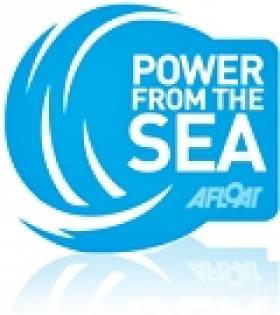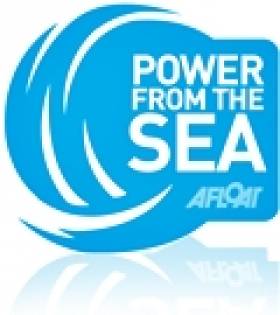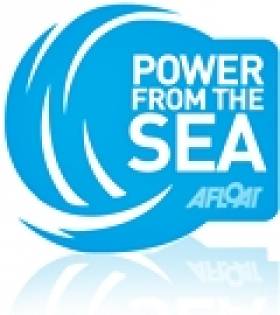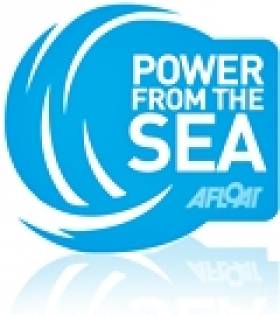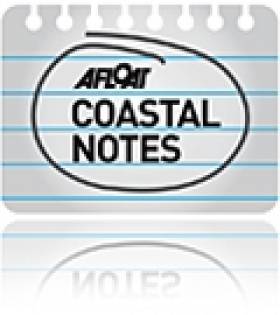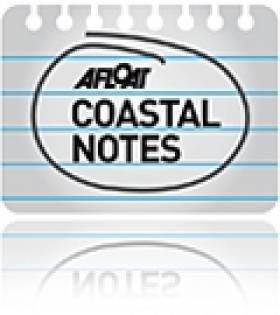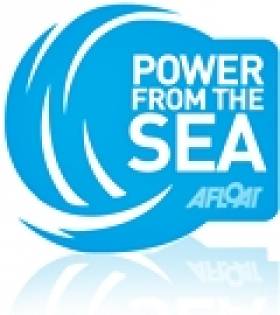Displaying items by tag: energy
#energy – A major energy conference entitled "Cork Harbour – Energising the Region" will be held in Cork this week, to discuss the opportunities and challenges in terms of energy, industry and tourism for the Harbour.
Providing more than one third of Ireland's energy requirements, the Harbour region is a vital element of Ireland's energy infrastructure and will be the focus of the the event hosted by Energy Cork and the Irish Maritime and Research Centre (Imerc) on Friday, 12 December 2014.
"From the legacy of a historic trading centre to today's modern port, Cork Harbour has become a world-class model of how industry, energy, tourism and leisure work together in harmony," explains Michael Quirk, Vice Chair of Energy Cork and conference co-ordinator. "A number of international and national speakers will discuss the success of Cork Harbour, as well as highlighting viable opportunities for future development."
A number of international speakers will address the event, including Gordon McIntosh of the Aberdeen City Council who will discuss the potential for Cork to become an oil and gas services hub. Aberdeen has been hugely successful and created enormous employment and wealth from their development as an oil, gas and offshore wind services hub in the UK. Hugo Niesen will discuss the Eharbours project, which may similarly provide new opportunities for Cork Harbour.
Cork Harbour is home to two major power stations, an oil refinery, a number of natural gas fields as well as several wind farms, and world-class marine renewable energy research centres. Cork Harbour's energy cluster will be a focus of the event, along with the region's industry, environment and green route energy opportunities.
"Cork is ideally placed to become a national hub for low-carbon vehicles, such as electric cars and gas powered buses. By implementing a number of policy measures, Cork is already leading the way for other Regions to follow in terms of green routes and energy efficiency in the Harbour," said Ian Kilgallon of Gas Networks Ireland, who will discuss the green route for the Harbour region.
Other speakers include Val Cummins of iMerc, Mike King of Phillips 66, Michael McCarthy of the Port of Cork, John Killeen of the Maritime Institute, John Mullins, Chair of Port of Cork and CEO of Amerenco. Minister for Agriculture, Food, the Marine and Defence, Simon Coveney, T.D. will also deliver the keynote address at the event.
The conference is free to attend, but registration is essential. For more information click here
#oceanenergy – Conor Haughey is to Chair the Irish Wave Energy Device Developers Association (IWEDA) following its inaugural meeting on 18 April, 2014 at NUI Maynooth. The organisation is made up of 11 Irish companies who are all developing different Ocean Energy Technologies.
The aim of the association are
• To promote the establishment a viable Ocean Energy Industry in Ireland.
• To secure government and EU support for the industry.
• To promote the industry to private equity investors.
• To collaborate resources and agree best development protocols
• To lobby state agencies involved in the sector for a better terms for our members.
• To address the imbalance between public monies available for academic research and that available to industry.
• To lobby Universities for better terms for access to facilities and research.
• To develop a 1/15th scale test site to complement existing Irish infrastructures that will address problems at an early stage before proceeding to the 1/4 scale Galway Bay site.
Considerable amounts of public monies have been spent on developing laboratory test facilities and ocean test sites in Ireland. This money will be wasted if Irish developers remain underfunded and unable to develop devices to be tested in these facilities.
With proper investment, government support and the help of research institutions we can create an Irish based global industry employing many thousands of people, while making a huge contribution to the economy and enable Ireland to reach its renewable energy targets.
Member Companies
1 Benson Engineering Tom Benson
2 Jospa Patrick Duffy/ Joss Fitzpatrick
3 JJ Campbell & Assoc Emmet Farrell/John Farrell
Wave Energy Ireland
4 Sea Energies Sean Lavelle
5 Blue Power Energy Conor Haughey/Damien Browne
6 Ocean Renewables Brendan McGrath
7 Wave Force Energy John Miller/David Beattie/Lawrence Crane
8 Cyan Technologies Tim Morrissey
9 Wavetech Energy Peter Redden
10 Limerick Wave Paddy Walsh/Paddy Kelly
11 Waveset John Beilenberg
Hydro Storage Scheme Among Clare's Renewable Energy Plans
#hydroenergy – Clare County Council today outlined plans to facilitate the development of Pumped Freshwater Hydro Energy Storage facilities similar to those already developed at Turlough Hill in County Wicklow.
Three locations, namely Slieve Callan, Slieve Bernagh and Woodcock Hill, have been marked as 'indicative areas' for the proposed facilities which are outlined in the newly developed Draft Clare County Renewable Energy Strategy.
Just 24 hours after the ESB confirmed that its 40-50m euro West Wave project will go ahead off Killard in West Clare, Clare County Council has become one of the first local authorities in the country to seek to incorporate such a Renewable Energy Strategy into their County Development Plan.
The Draft Strategy outlines the potential for a range of renewable resources, including bioenergy and anaerobic digestion, micro renewables, geothermal, solar, hydro, energy storage, onshore and offshore wind, wave and tidal energy.
Some of the key objectives set out in the Strategy include the following:
• To maximise use in the County, of the available bioenergy resource to exceed national targets for renewable heat of 12% and 10% by 2020.
• To favourably consider the redevelopment of brown field sites in predominantly industrial / commercial areas for large solar PV projects.
• To work in partnership with the marine renewable energy sector (wave, tidal and offshore), DECNR, EirGrid and other relevant stakeholders to deliver the key actions recommended by the Ocean Renewable Energy Development Plan (OREDP) and Grid 25, ensuring that electricity generated off the coast of County Clare can be exported to the demand market subject to the requirements of all environmental legislation.
• To collaborate with EirGrid over the lifetime of the Strategy to ensure that County Clare has the grid infrastructure in place to maximise its potential for renewable energy generation to meet its own energy needs and to enable export to the demand market.
• To require all planning applications for new buildings to demonstrate how their designs have incorporated energy efficiency or passive measures, as a means of reducing future reliance on traditional fuel sources.
Members of the public have been invited to review the Draft Strategy and submit written submissions or observations on or before 11th April 2014.
Councillor Joe Arkins, Mayor of Clare welcomed the publication of the Draft Strategy, describing the harnessing of renewable energy resources as "a key method of attracting inward investment to County Clare".
The Mayor continued: "Clare County Council is taking a proactive approach to facilitating renewable energy development and through this Strategy is helping to guide the location and development of renewable energy proposals. A clear opportunity exists in Ireland, and particularly in County Clare, to exploit renewable energy resources. In doing so, the Council is seeking to create clean energy and attract inward investment to the County and the country at a time when Ireland is searching for solutions to many social and economic issues."
"The publication of this Draft Strategy is timely as it coincides with the announcement by the ESB of a wave energy project near Doonbeg which will have a spend of up to 50m euro with significant positive spinoffs for the local community and wider region," added Mayor Arkins.
According to Clare County Manager, Tom Coughlan: "The Draft Strategy acknowledges the significant contribution that a range of renewable resources can make to County Clare being more energy secure, less reliant on traditional fossil fuels, enabling future energy export and meeting assigned targets.
He added: "Clare is particularly fortunate to possess considerable wind, biomass, wave and tidal resources. It is imperative that we have a strategy in place to maximise the potential of these resources while minimising any environmental impacts, thus enabling the County to achieve a low-carbon economy."
Commenting on the proposal to facilitate the development of Pumped Freshwater Hydro Energy Storage (PFHES) facilities, Senior Council Planner Gordon Daly said such technology was "relatively underutilised in Ireland but presented significant potential for the domestic renewables sector".
Mr. Daly continued: "A pumped hydroelectric energy scheme is a mechanical device for storing energy. It consists of two large reservoirs located at different elevations, typically between 200-300m and a number of pump/turbine units. Fresh water stored in an upper reservoir is processed in a turbine to recover its energy. The turbine runs a generator which converts the mechanical energy into electricity which is fed to the grid. The processed water is then captured in a lower reservoir. When demand for electricity is low, usually at night, the water is pumped back up into the upper reservoir. Turlough Hill in County Wicklow is an example of a PHES system."
Copies of the Draft Clare County Renewable Energy Strategy and proposed variation to the Clare County Development Plan may be inspected during normal opening hours from Friday 14th March to Friday 11th April 2014 (inclusive) at the Planning and Enterprise Development Section, Clare Co. Council in Áras Contae an Chláir, all public libraries in Co. Clare and on the Clare County Council website (www.clarecoco.ie).
Submissions or observations should be addressed to: Planning and Enterprise Development, Clare County Council, Áras Contae an Chláir, New Road, Ennis, Co. Clare, no later than 4p.m. Friday 11th April 2014. Alternatively, submissions may also be emailed to [email protected] (maximum document size by e-mail: 4MB) or may be faxed to 065-6892071. Submissions made via email must include the full name and address of the person making the submission.
Energy Chief Challenges Ireland to Become Global Maritime Leader
#powerfromthesea – A large crowd of 130 people gathered at the National Maritime College of Ireland for the Annual IMERC Conference to discuss how disruptive innovation can help Ireland realise its ocean potential. A disruptive innovation is an innovation which disrupts, improves and replaces an existing product, process approach or idea over time in unexpected ways. IMERC, the Irish Maritime and Energy Resource Cluster, is a partnership between University College Cork, Cork Institute of Technology and the Irish Naval Services.
The government aims to increase turnover from the sea to €6.4 billion by 2030. Chris Roche, the Chief Technical Officer (CTO) of EMC Europe, Middle East and Africa) EMEA Division, challenged the gathering to make the leap to disruptive innovation. He said "It is fantastic to see a cluster around such an obvious potential benefit to the country. The major question is if IMERC will move at enough speed and really embrace disruptive innovation?"
Mr Roche pointed out that Ireland is not among the top ten countries with the longest coastline in the world, nor is it among the largest Maritime and Energy clusters. To be successful Ireland will have to be innovative in its approach to building networks and take advantage of big data in the maritime sector.
"While Ireland is not among the countries with the longest coastlines, it does have the largest maritime to land mass area in the EU and is the third largest territory in the EU when its seabed is included which means that the maritime sector has huge growth possibilities for the Irish economy."
Dallas Meggitt CEO of Sound and Sea Technology also spoke at the conference. Last week Sound and Sea Technology announced the creation of 55 new jobs to be located on the IMERC campus. This conference made tangible contribution to the realisation of Ireland's ocean potential by bringing together speakers and guests from North America and Europe from a range of backgrounds including industry, government and academia to discuss the role disruptive innovation can play in driving this sector. IMERC is already making a big contribution to this sector with advanced plans for the development of a research and commercial campus in Ringaskiddy.
Tánaiste Signs New Maritime Boundary Agreement
#MaritimeBorder - Tánaiste and Minister for Foreign Affairs Eamon Gilmore has signed a new agreement that establishes a fixed maritime boundary between the UK and Ireland's offshore areas, as The Irish Times reports.
Gilmore put pen to paper on the deal with British ambassador to Ireland Dominick Chilcott that finalises a single boundary between the Exclusive Economic Zones (EEZ) and continental shelves of both countries.
The agreement is expected to ease development of offshore energy projects, as well as improve fisheries protection and marine conservation in the EEZ, which lies above the continental shelf between 12 and 200 nautical miles off the coast.
However, despite the new deal, Ireland and Britain's differing claims over Rockall in the North Atlantic remain.
The small rocky islet, 228 nautical miles northwest of Donegal, is also claimed by Denmark and Iceland.
Ireland to Get First 'Energy Bank' Beneath NI Lough
#COASTAL NOTES - The first ever 'energy bank' on this island will be constructed deep beneath a coastal lough in Northern Ireland, as the Irish Independent reports.
Some 500 million cubic metres of gas are set to be stored in salt caverns a mile under Larne Lough on the north Antrim coast, after NI Environment Minister Alex Attwood have his go-ahead for the project earlier today.
The Belfast Telegraph reports that site preparation work will begin before the end of this year on the expected seven-year construction scheme.
The €492.5-million gas storage facility is expected to hold a 60-day supply to create a buffer against increasing energy price rises.
"This security of supply of energy will be a significant step forward in the way we manage our energy sector," said Minister Attwood. "North Sea gas supplies are declining steeply and this facility will make a significant contribution to the security of gas supplies for the whole island of Ireland and indeed for Britain."
Meanwhile, environmentalists have voiced concerns over the planned disposal of salt from the caverns into the sea, and its potential to cause harm to marine wildlife and biodiversity.
Though Minister Attwood said he was conscious of environmental concerns, James Orr of Friends of the Earth argued that the dumping of hypersaline salt solution "will kill or be seriously detrimental to the development of larval stages of fish and crustaceans", and that Northern Ireland should rather be investing in renewable energy.
The Belfast Telegraph has more on the story HERE.
Kelly to Give Keynote Address at Wind Energy Conference
Mr Kelly is a keen supporter of wind energy and through his presence on the key Energy Committee in the European Parliament, has called for Ireland to generate more electricity from this resource in order to become less dependent on imported fossil fuels and eventually export power to lucrative EU markets.
The IWEA's Annual Conference takes place over the 24th-25th March 2011 at the Four Season's Hotel, Dublin.
Programme for Government will Reinstate Marine Department
It maybe the second last item on the programme for government issued by Enda Kenny and Eamon Gilmore yesterday but the indications are good that the marine sector will see a reinstated Department of the Marine. the Fine Gael and Labour coalition say 'marine responsibilities will be merged under one Department, for better co-ordination in policy delivery'. Here is the relevant excerpt:
Coastal communities, fisheries & marine environment
We will negotiate the best possible deal for fishermen in the review of the Common Fisheries Policy.
We will support the development of sustainable aquaculture and fish farms by streamlining the licensing process and reducing associated bureaucracy.
Marine responsibilities will be merged under one Department, for better co-ordination in policy delivery. We will develop an integrated marine and coastal planning process in order to maximise the potential of Ireland's coastline in fishing, aquaculture, ocean energy and tourism.
A Sea Fisheries Sustainability Impact Assessment, based on consultation with all major stakeholders, will be brought before the Dáil annually before EU fisheries negotiations commence.
We will replace criminal sanctions system for minor fisheries offences with administrative sanction system to bring Ireland into line with other European jurisdictions. Safety at sea and decent working conditions must underpin the development of the fisheries sector. We will explore the provision of an emergency towing vessel for the Coastguard.


























